Using Learning
6. Investing in What Works through Grants and Contracts
Michigan
Leading Example
In 2022, the Michigan Department of Education launched the Great Start Readiness Program, providing over $337 million to fund local preschool programs for four-year-old children experiencing factors placing them at risk of educational failure. Applicants were required to use the Great Start Readiness preschool education model, an evidence-based practice rated as highly effective in the Results First Clearinghouse.
In 2022, the Michigan Department of Labor and Economic Opportunity used a tiered evidence framework from the AmeriCorps Evidence Exchange to define and prioritize evidence of effectiveness and to allocate funds through its AmeriCorps grant program. Criteria from the Evidence Exchange assigned preference to evidence-based interventions assessed as ‘Moderate’ or ‘Strong’. To do this, the grant attributed points within Program Design (worth 50% of total points) towards evidence-based criteria, including Evidence Tier (worth 12%) and Evidence Quality (worth 8%). Evidence Base was subsequently awarded up to 20 points and Evidence Tier was allotted 12 points. The Request for Proposals indicted that “many of these interventions have demonstrated effectiveness in improving outcomes for individuals living in underserved communities and that the agency has committed resources to supporting grantees seeking to replicate and evaluate these interventions in similar communities”. Evidence of effectiveness was prioritized by stating that “all applicants must propose program designs that are either evidence-based or evidence-informed. Applicants assessed as lower than the Preliminary evidence tier (i.e., Pre-Preliminary) must provide adequate responses to the Evidence Quality review criteria in order to be considered for funding.” Applicants were encouraged to consider interventions through the AmeriCorps Mandatory Supplemental Guidance that further defined evidence.
In 2021, Michigan’s Department of Corrections (DoC) created the Evidence-Based Services for Youth in the Juvenile Justice System Grant Program. True to its title, the Michigan DoC required that applicants use the following evidence-based models: Multisystemic Therapy (MST), Multisystemic Therapy for Problem Sexual Behaviors (MST-PSB), or Functional Family Therapy (FFT). These interventions are all rated as highly effective in the Results First Clearinghouse.
Promising Examples

Alaska
Alaska
In 2022, the Alaska Department of Commerce, Community, and Economic Development used a tiered evidence framework from the AmeriCorps Evidence Exchange to determine fund allocation through the AmeriCorps State program. The Request for Proposals requires evidence-based interventions with ‘Moderate’ or ‘Strong’ evidence for consideration, and dedicates 20% of the available points to the tier of evidence used (12%) and quality of evidence (8%).

Arizona
Arizona
In 2021, the Arizona Department of Education used a tiered evidence-based framework from the Every Student Succeeds Act (ESSA) to define evidence and allocate funding for the Arizona Comprehensive Literacy State Development (CLSD) Grant program. Only evidence-based strategies assessed as Strong or Moderate would be considered for funding. Additional evidence-based resources were provided for further assistance to applicants, including the Striving Readers Comprehensive Literacy (SRCL) Program and the US Department of Education’s What Works Clearinghouse. The State asserted that eligible applicants will be determined based on a weighted measure and cut score based on indicators measuring students on free and reduced lunch, and students who are in foster care or homeless.

Arkansas
Arkansas
In 2021 and 2022, the Arkansas Division of Workforce Services used a tiered evidence framework to allocate funds through its AmeriCorps Arkansas program. This program requires evidence of effectiveness for proposed services and defines such evidence by referencing the AmeriCorps Evidence Exchange. In 2022 the program specified that evidence of effectiveness represented a meaningful share of the points awarded within its “Program Design” rating category (worth 50% of total points). Applicants were encouraged to use interventions assessed as having ‘Moderate’ or ‘Strong’ tiered evidence, and to use the Mandatory Supplemental Guidance offered that further defined evidence of effectiveness.

California
California
In both 2021 and 2022, the governmental organization California Volunteers used a tiered evidence framework to allocate funds through its AmeriCorps California program. The 2021 Request for Proposals specified that within Program Design (worth 50% of total points), Evidence Tier was worth 12% and Evidence Quality was worth 8%. In 2022, Evidence Tier was given 6% and Evidence Quality 4%. Both RFPs required evidence by asserting that “applicants assessed in the Pre-Preliminary evidence tier who do not provide adequate responses to the Evaluation Quality standards will not meet the threshold requirements for this Funding Opportunity and will not be considered for competitive funding.” The 2021 RFP defined evidence through suggesting both the AmeriCorps Evidence Exchange and the Corporation for National and Community Service (CNCS), and the 2022 grant referenced the AmeriCorps Evidence Exchange. Applicants were encouraged to use interventions assessed as having ‘Moderate’ or ‘Strong’ tiered evidence, and to utilize the Mandatory Supplemental Guidance offered that further defined evidence.
In 2022, the California Board of State and Community Corrections defined and prioritized evidence for the Adult Reentry Grant Program. This grant program funds community-based organizations delivering Housing First services for people formerly incarcerated in state prison. The program defines evidence-based practices to be programs that have been found effective using rigorous scientific research methods. In the process of scoring applications for funding, a six-point rating scale is used to assess the evidence for the proposed services. The State also allocates points for the quality of proposed performance evaluation and monitoring methods.
In 2021, the California Department of Education used a tiered evidence-based framework from The California Evidence-Based Clearinghouse for Child Welfare (CEBC) to define evidence and allocate funding for the California Comprehensive Literacy State Development (CLSD) Grant program. Evidence-based strategies were required components for funding consideration. The Request for Proposals also allocated 8 points (out of 84) to grantees who described evidence-based practices and the evidence used to support the selected strategies. Within the RFP, grantees were encouraged to use evidence-based practices to direct attention towards disadvantaged children, including children living in poverty, English learners, and children with disabilities.
In 2022, the California Department of Education defined and prioritized evidence in the Reading Instruction and Intervention Grant. This grant program funds services that improve professional learning of K-12 educators to support all diverse learners. In the process of scoring applications for funding, up to 64 points (out of 132) are awarded based on evidence provided, as defined by ESSA. The State also allocates up to 16 points to program designs that conduct rigorous evaluations to determine impacts on K–12 student achievement.
In 2021, the State Bar of California devoted $58.5 million to support its Homelessness Prevention Competitive Grant Program focused on providing legal services to prevent eviction, an evidence-based practice. The program awards up to 20 bonus points for applicants who focus on homelessness and housing insecurity within rural and underserved populations.

Colorado
Colorado
In 2021, the Colorado Department of Education used an evidence-based framework to allocate funds to the Colorado Comprehensive Literacy State Development Grant (CLSD) program. Grantees were required to utilize evidence-based interventions that help children develop reading, writing, speaking, and listening skills, as defined by the Colorado Reading to Ensure Academic Development (READ) Act. The State’s grant program placed an emphasis on funding directly supporting historically underserved students, including children in poverty, English learners, and children with disabilities.
The Colorado Department of Education grant program for school improvement, Empowering Action for School Improvement, has required schools to use evidence-based practices as defined by the federal Every Student Succeeds Act (ESSA) since 2018. The application gives points for the use of evidence-based strategies, as well as points based on past performance for applicants who are seeking to expand existing initiatives.
In July of 2021, the Colorado Workforce Development Council launched the Upskilling, Reskilling, and Next-Skilling Workers program to support evidence-based projects that improve workforce development and employment capacity. The application awards points for seven criteria, one of which includes the level of evidence of the proposed approach as defined by the Colorado Evidence Continuum.

Connecticut
Connecticut
In 2022, the Connecticut Office of Higher Education used a tiered evidence framework from the AmeriCorps Evidence Exchange to both define evidence and allocate funds through its AmeriCorps Connecticut program. The grant attributed points within Program Design (worth 50% of total points) towards evidence-based criteria, including Evidence Tier (worth 12%) and Evidence Quality (worth 8%). Evidence Tier was subsequently awarded up to 12 points and Evidence Quality was allotted 8 points. The RFP asserted that “all applicants must propose program designs that are either evidence-based or evidence-informed. Applicants assessed as lower than the Preliminary evidence tier (i.e., Pre-Preliminary) must provide adequate responses to the Evidence Quality review criteria in order to be considered for funding.” Applicants were encouraged to use interventions assessed as having ‘Preliminary,’ ‘Moderate’, or ‘Strong’ tiered evidence through the AmeriCorps Mandatory Supplemental Guidance that further defined evidence.

Florida
Florida
In 2022, the Florida Agency for Healthcare Administration solicited a Request for Proposals for its Evidence-Based Practices (EBPs) to Improve Behavioral Health Outcomes for Children and Youth in Florida’s Child Welfare System grant program. This program funds preventative interventions for children who are at-risk of entering foster care. Grantees must deliver the Brief Strategic Family Therapy (BSFT) intervention, deemed well-supported on the Title IV-E Prevention Services Clearinghouse, which focuses on Medicaid-eligible children and their families.
In 2022, Volunteer Florida, a nonprofit organization that administers state AmeriCorps funding, used a tiered evidence framework from the AmeriCorps Evidence Exchange in allocating funding through the Florida AmeriCorps program. The Request for Proposals prioritized evidence-based interventions with ‘Moderate’ or ‘Strong’ evidence for consideration by attributing points within Program Design (worth 50% of total points) towards evidence-based criteria, including Evidence Tier (worth 12%) and Evidence Quality (worth 8%). Evidence Base was subsequently awarded up to 20 points and Evidence Tier was allotted 12 points. The RFP indicated that “many of these interventions have demonstrated effectiveness in improving outcomes for individuals living in underserved communities and that the agency has committed resources to supporting grantees seeking to replicate and evaluate these interventions in similar communities”. Applicants assessed as lower than the Preliminary evidence tier (i.e., Pre-Preliminary) must provide adequate responses to the Evidence Quality review criteria in order to be considered for funding.” Applicants were encouraged to consider interventions through the AmeriCorps Mandatory Supplemental Guidance that further defined evidence tiers.

Georgia
Georgia
Georgia’s Division of Family and Children Services’ Promoting Safe and Stable Families program requires that all “service plans must include evidence-based programs, practices, and/or strategies proven effective in meeting the needs of children and their families.” The evidence-based requirement in the requests for proposal (Form 3) includes the following components: a description of the evidence-based model, practice, or strategies for service delivery; the evidence-based rating from the California Evidence-Based Clearinghouse for Child Welfare (CEBC) or comparable rating from a relevant clearinghouse; a description of how the evidence-based model, practice, or strategy will be effective in meeting the grant’s objectives; and a description of how the model will be implemented.
In 2020, the Georgia Department of Education both prioritized and defined evidence through their Literacy for Learning, Living, and Leading in Georgia (L4GA) program. In line with the Every Student Succeeds Act (ESSA) that defines different tiers of evidence, the L4GA provides multiple examples of evidence-based interventions as well as several clearinghouses applicants can utilize to design their programs. Some of these interventions/clearinghouses include the US Department of Education’s What Works Clearinghouse (WWC), Blueprints for Healthy Youth Development (Blueprints), The Laura and John Arnold Foundation’s Social Programs that Work (Social Programs that Work), dialogic reading (moderate evidence), peer-assisted learning (strong evidence), small-group reading interventions (strong evidence), and explicit comprehension/vocabulary instruction (strong evidence). Additionally, up to 25 points (out of 200 points) are allocated in line with the usage of EBPs, and “only sub-grants with well-articulated goals grounded in evidence-based practices” are considered.

Indiana
Indiana
In 2022, the Indiana Department of Workforce Development used a tiered evidence framework from the AmeriCorps Evidence Exchange to both define evidence and allocate funds through its AmeriCorps Indiana program. Criteria from the Evidence Exchange assigned preference to evidence-based interventions assessed as ‘Moderate’ or ‘Strong’. To do this, the grant attributed points within Program Design (worth 50% of total points) towards evidence-based criteria, including Evidence Tier (worth 12%) and Evidence Quality (worth 8%). Evidence Quality was subsequently awarded up to 8 points and Evidence Tier was allotted 12 points. The RFP asserted that “all applicants must propose program designs that are either evidence-based or evidence-informed. Applicants assessed as lower than the Preliminary evidence tier (i.e., Pre-Preliminary) must provide adequate responses to the Evidence Quality review criteria in order to be considered for funding.” Applicants were encouraged to consider interventions through the AmeriCorps Mandatory Supplemental Guidance that further defined evidence.

Iowa
Iowa
In 2022, the statewide Iowa Commission on Volunteer Service used a tiered evidence framework from the AmeriCorps Evidence Exchange to define and prioritize evidence of effectiveness in its allocation of funds through its AmeriCorps grant program. Criteria from the Evidence Exchange assigned preference to evidence-based interventions assessed as ‘Moderate’ or ‘Strong’. To do this, the grant attributed points within Program Design (worth 50% of total points) towards evidence-based criteria, including Evidence Tier (worth 12%) and Evidence Quality (worth 8%). Evidence Base was subsequently awarded up to 20 points and Evidence Tier was allotted 12 points. The RFP asserted that “many of these interventions have demonstrated effectiveness in improving outcomes for individuals living in underserved communities and that the agency has committed resources to supporting grantees seeking to replicate and evaluate these interventions in similar communities”; thus, evidence was prioritized by stating that “all applicants must propose program designs that are either evidence-based or evidence-informed. Applicants assessed as lower than the Preliminary evidence tier (i.e., Pre-Preliminary) must provide adequate responses to the Evidence Quality review criteria in order to be considered for funding.” Applicants were encouraged to consider interventions through the AmeriCorps Mandatory Supplemental Guidance that further defined evidence.

Kentucky
Kentucky
In 2022, the Kentucky Public Service Commission used a tiered evidence framework from the AmeriCorps Evidence Exchange to both define evidence and allocate funds through its AmeriCorps Kentucky State Grant Program. Criteria from the Evidence Exchange assigned preference to evidence-based interventions assessed as ‘Moderate’ or ‘Strong’. To do this, the grant attributed points within Program Design (worth 50% of total points) towards evidence-based criteria, including Evidence Tier (worth 12%) and Evidence Quality (worth 8%). Evidence Quality was subsequently awarded up to 8 points and Evidence Tier was allotted 12 points. The RFP asserted that “many of these interventions have demonstrated effectiveness in improving outcomes for individuals living in underserved communities and that the agency has committed resources to supporting grantees seeking to replicate and evaluate these interventions in similar communities”; thus, evidence was prioritized by stating that “all applicants must propose program designs that are either evidence-based or evidence-informed. Applicants assessed as lower than the Preliminary evidence tier (i.e., Pre-Preliminary) must provide adequate responses to the Evidence Quality review criteria in order to be considered for funding.” Applicants were encouraged to consider interventions through the AmeriCorps Mandatory Supplemental Guidance that further defined evidence.

Louisiana
Louisiana
In 2022, the statewide Louisiana State Service Commission used a tiered evidence framework from the AmeriCorps Evidence Exchange to define evidence and allocate funds through its AmeriCorps Louisiana State Grant Program. Criteria from the Evidence Exchange assigned preference to evidence-based interventions assessed as ‘Moderate’ or ‘Strong’. To do this, the grant attributed points within Program Design (worth 50% of total points) towards evidence-based criteria, including Evidence Tier (worth 12%) and Evidence Quality (worth 8%). Evidence Base was subsequently awarded up to 20 points and Evidence Tier was allotted 12 points. The Request for Proposals indicated that many of these interventions have demonstrated effectiveness in improving outcomes for individuals living in underserved communities and that the agency has committed resources to supporting grantees seeking to replicate and evaluate these interventions in similar communities. Applicants were encouraged to consider interventions through the AmeriCorps Mandatory Supplemental Guidance that further defined evidence.

Maryland
Maryland
The Maryland Department of Education Stronger Connections Grant (SCG) program funds services to increase capacity surrounding safe, inclusive, and supportive learning environments and preventing violence through increased emotional resilience. In the process of scoring applications for funding, up to 10 (out of 90) points are allocated for evidence of impact as defined by ESSA.
The Maryland Governor’s Office on Service and Volunteerism AmeriCorps State and National Grants program funds service-oriented efforts that address critical community needs. Priority is given to proposed program designs assessed as having Moderate or Strong evidence as defined by the AmeriCorps Evidence Exchange. In the process of scoring applications for funding, up to 20 points (out of 100) are awarded based on evidence quality and tier.

Massachusetts
Massachusetts
In 2022, the Massachusetts Service Alliance, a nonprofit organization that administers state AmeriCorps funding, used a tiered evidence framework from the AmeriCorps Evidence Exchange in allocating funding through the Massachusetts AmeriCorps program. The Request for Proposals prioritized evidence-based interventions with ‘Moderate’ or ‘Strong’ evidence by attributing points within Program Design (worth 50% of total points) towards evidence-based criteria, including Evidence Tier (worth 12%) and Evidence Quality (worth 8%). Evidence Base was subsequently awarded up to 20 points and Evidence Tier was allotted 12 points. The RFP asserted that “many of these interventions have demonstrated effectiveness in improving outcomes for individuals living in underserved communities and that the agency has committed resources to supporting grantees seeking to replicate and evaluate these interventions in similar communities.” Applicants assessed as lower than the Preliminary evidence tier (i.e., Pre-Preliminary) must provide adequate responses to the Evidence Quality review criteria in order to be considered for funding.” Applicants were encouraged to consider interventions through the AmeriCorps Mandatory Supplemental Guidance that further defined evidence tiers.

Minnesota
Minnesota
In early 2022, Minnesota created a Grantmaking Impact Improvement Team composed of executive branch leaders with grantmaking and impact-oriented expertise. The Team also includes external advisors representing evidence-based policymaking and non-profit organizations. This group of experts established best practices intended to provide direction for how grant programs can maximize impact through evidence-based practices, community-based best practices, and accessible grantmaking processes. Additionally, they are charged with reviewing select grant programs for these standards and making associated recommendations. This Team will build off the work of several Minnesota agencies who have defined and prioritized evidence in the following grant programs:
The Minnesota Department of Education invested $35.9 million in the Comprehensive Literacy State Development Program in 2020. This grant program funds the development of sustainable educational systems to increase the literacy skills of Minnesota students, especially those with the highest needs. The program targets improvement of core instruction by building staff capacity to deliver evidence-based literacy practices, as defined by the US Department of Education. Applicants must commit to using CLSD training and coaching from a targeted list of evidence-based literacy practices. Grantees are offered extra points to take part in the impact evaluation study conducted by the US Department of Education to better understand the implementation of CLSD.
The Minnesota Department of Education also invested $5 million in Full-Service Community Schools in 2021. This grant program exclusively funds the implementation and expansion of evidence-based full-service community schools. Applicants prioritizing defined special student populations are eligible to receive up to 32 bonus points for consideration.
The Minnesota Department of Health invested $0.5 million in Strong Foundations: Evidence-based Home Visiting Start-Ups in 2021. This grant program exclusively funds the start-up or expansion of evidence-based home visiting programs. Grantees must deliver one of the following evidence-based models: Healthy Families America (HFA), Nurse Family Partnership (NFP), Family Spirit, Early Head Start (Home Based), Maternal Early Childhood Sustained Home Visiting (MECSH), or Parents as Teachers (PAT).
The Minnesota Department of Human Services invested $4.6 million in Housing with Supports for Adults with Serious Mental Illness in 2022. This grant program funds services to help adults with serious mental Illness achieve permanent housing. Grantees must deliver services with evidence of effectiveness from at least one impact evaluation that uses an experimental or quasi-experimental design. The State provides training to grantees on delivering evidence-based services and requires grantees to monitor and report fidelity to the evidence-based model. The selection criteria for grant awards considers applicants’ capacity to serve underserved and minority populations in a culturally responsive manner.
Serve Minnesota (a nonprofit that administers state AmeriCorps funding) invested $49.4 million in AmeriCorps State and National Grants in 2022. This grant program funds service-oriented efforts surrounding community health and wellness. In the process of scoring applications for funding, up to 20 points (out of 100) are awarded based on evidence quality and tier as defined by the AmeriCorps Evidence Exchange. The selection criteria also award points for organizations/programs with diversity, equity, and inclusion councils seeking to diversify and retain members, as well as ensuring programming is culturally and community appropriate.
A Minnesota law (Sec. 127) requires the Minnesota Management and Budget (MMB) to systematically review the Department of Human Services’ use of evidence in allocating hundreds of millions of dollars in grant funding each biennium. This evaluation for 2022 – 2023 found one-third of the state-funded grant programs that were reviewed support at least one evidence-based practice. Minnesota estimates that about $15 million (or 6%) of the biennial allocations to these programs are for activities that have been demonstrated to impact outcomes of interest. In reviewing the 2024 – 2025 enacted budget, MMB identified $558M in new investment above base in evidence-based practices across DHS and Minnesota Department of Health. These funds support over 22 programs focused on mental and behavioral health, access to care, substance use disorder, and more. RFPs have not yet been issued for these grants, but the process of developing performance measures listed below will apply to the RFP process, ensuring grantees submit information regarding performance measures and can be evaluated based on ability to provide evidence of effectiveness.
In the 2024 – 2025 budgets, MMB is further directed to partner with the Department of Human Services and Department of Health to cocreate performance measures and an evaluation plan for all new grants allocating $750k or more. As a result of this requirement, MMB will be supporting evaluation for approximately 38 new programs, representing ~$300M in grant funding for the fiscal year. Support will include defining performance measures, establishing a data collection and evaluation plan, writing RFPs which align grantees to measurement requirements, and supporting reporting of program efficacy to the Legislature. While this work is only just beginning, an example of a grant with existing performance measurement requirements in the RFP is DHS’ Opioid Epidemic Response Services RFP which requires applicants to complete a Performance Measurement Plan outlining the goals, objectives, outcomes, measures, and data collection approaches the applicant will use to measure and report performance. Additionally, this application notifies all applicants that they are eligible for consultation from MMB to understand the impact of the proposed program on participant outcomes.

Missouri
Missouri
In 2022, the Missouri Department of Economic Development used a tiered evidence framework from the AmeriCorps Evidence Exchange to both define and prioritize evidence, as well as allocate funds through its AmeriCorps Missouri State Grant Program. Criteria from the Evidence Exchange assigned preference to evidence-based interventions assessed as ‘Moderate’ or ‘Strong’. To do this, the grant attributed points within Program Design (worth 50% of total points) towards evidence-based criteria, including Evidence Tier (worth 12%) and Evidence Quality (worth 8%). Evidence Base was subsequently awarded up to 20 points and Evidence Tier was allotted 12 points.
Evidence was prioritized by stating that “all applicants must propose program designs that are either evidence-based or evidence-informed. Applicants assessed as lower than the Preliminary evidence tier (i.e., Pre-Preliminary) must provide adequate responses to the Evidence Quality review criteria in order to be considered for funding.” Applicants were encouraged to consider interventions through the AmeriCorps Mandatory Supplemental Guidance that further defined evidence. In improving the evidence design of Missouri’s current AmeriCorps programs and applicants, Missouri is more competitive on the national stage. To that end, in May 2022, it was announced that Missouri would be receiving two new competitive AmeriCorps grants, and this led to an increase of $912,290 in federal support to Missouri communities they would not have otherwise seen. The Missouri Community Service Commission expects this number to increase again next year.

Montana
Montana
In 2020, the Montana Office of Public Instruction utilized evidence-based resources to inform Montana’s Comprehensive Literacy State Development (CLSD) Grant program. The State prioritized evidence by allocating up to 60 points (out of 200) for project selection criteria which includes using evidence-based practices. The Montana Office of Public Instruction released a process for selecting relevant, evidence-based interventions qualifying as Strong or Moderate, and provided resources to several research clearinghouses such as The U.S. Department of Education’s What Works Clearinghouse (WWC), the Institute of Education Science Resource Guides, and the Pew Results First Clearinghouse (Results First).
In 2022, the Montana Governor’s Office of Community Service used a tiered evidence framework from the AmeriCorps Evidence Exchange to both define and prioritize evidence, as well as allocate funds through its AmeriCorps Serve Montana State Grant Program. Criteria from the Evidence Exchange assigned preference to evidence-based interventions assessed as ‘Moderate’ or ‘Strong’. To do this, the grant attributed points within Program Design (worth 50% of total points) towards evidence-based criteria, including Evidence Tier (worth 12%) and Evidence Quality (worth 8%). Evidence Base was subsequently awarded up to 20 points and Evidence Tier was allotted 12 points. The RFP asserted that “many of these interventions have demonstrated effectiveness in improving outcomes for individuals living in underserved communities and that the agency has committed resources to supporting grantees seeking to replicate and evaluate these interventions in similar communities;” thus, evidence was prioritized by stating that “all applicants must propose program designs that are either evidence-based or evidence-informed. Applicants assessed as lower than the Preliminary evidence tier (i.e., Pre-Preliminary) must provide adequate responses to the Evidence Quality review criteria in order to be considered for funding.” Applicants were encouraged to consider interventions through the AmeriCorps Mandatory Supplemental Guidance that further defined evidence. Montana’s State Service Plan was also provided to give applicants more support towards defining and prioritizing evidence.

Nevada
Nevada
In 2020, the Nevada Department of Education’s Adult Education and Family Literacy programming required applicants to use Adult Basic/Secondary Education (ABE/ASE), including teaching English as a Second Language (ESL), with up to 60 points awarded for quality of the evidence-based instructional approaches proposed.
In 2021, the Nevada Department of Education’s 21st Century Community Learning Centers program, which funds services providing academic and enrichment opportunities for children and their families, required applicants to demonstrate that each proposed intervention meets one of the Every Student Succeeds Act Evidence Levels (Tiers 1-4). In the process of scoring applications for funding, up to 20 points were awarded for evidence alignment and completeness.

New Hampshire
New Hampshire
In 2021, Volunteer New Hampshire, a nonprofit organization that administers state AmeriCorps funding, used a tiered evidence framework from the AmeriCorps Evidence Exchange to determine fund allocations through the New Hampshire AmeriCorps program. The Request for Proposals prioritized evidence-based interventions with ‘Moderate’ or ‘Strong’ evidence for consideration by attributed points within the overall Evidence Base section (worth 12 points) towards evidence-based criteria, including both Evidence Tier and Evidence Quality. The RFP asserted that “many of these interventions have demonstrated effectiveness in improving outcomes for individuals living in underserved communities and that the agency has committed resources to supporting grantees seeking to replicate and evaluate these interventions in similar communities.” Applicants assessed as lower than the Preliminary evidence tier (i.e., Pre-Preliminary) were required to provide adequate responses to the Evidence Quality review criteria in order to be considered for funding.” Applicants were encouraged to consider interventions through the AmeriCorps Mandatory Supplemental Guidance that further defined evidence tiers.

New Jersey
New Jersey
The New Jersey Department of State oversees the AmeriCorps State and National Grants program that funds service-oriented efforts surrounding community health and wellness. In the process of scoring applications for funding, up to 12 points (out of 100) are awarded based on evidence of effectiveness of the proposed services, as defined by the AmeriCorps Evidence Exchange. The State requires applicants who have previously received 3+ years of funding for the same project to submit impact evaluation plans according to the approved AmeriCorps requirements.

New Mexico
New Mexico
In 2022, the New Mexico Department of Workforce Solutions used a tiered evidence framework from the AmeriCorps Evidence Exchange to define and prioritize evidence of effectiveness in the allocation of funds through its AmeriCorps grant program. Criteria from the Evidence Exchange assigned preference to evidence-based interventions assessed as ‘Moderate’ or ‘Strong’. Applicants were encouraged to consider interventions through the AmeriCorps Mandatory Supplemental Guidance that further defined evidence tiers. Full evidence-based regulations were also highlighted online at www.ecfr.gov.
During FY23 New Mexico’s Corrections Department moved towards requiring evidence-based programming in all contracts for community Behavioral Health and Transitional Housing. The RFP includes the following language: “Provider shall develop services based on evidence-based practices that are proven to be successful through research methodology and have produced consistent positive patterns of results, such as group treatment for substance abuse, Motivational Interviewing Therapy and Stages of Change Theory. The following criteria shall be utilized for the implementation of Evidence Based Practices (EBP):
- At least one randomized clinical trial that has shown this practice to be effective;
- The practice either targets behaviors or shows significant effect on behaviors that are generally accepted outcomes; and
- The practice should be specific to the treatment organizations population, including racial, linguistic, geographical and cultural factors – including characteristics specific to the offender population.”

New York
New York
In 2022, the New York Office of Children and Family Services used a tiered evidence framework from the AmeriCorps Evidence Exchange to define and prioritize evidence of effectiveness when allocating funds through its AmeriCorps New York State Grant Program. Criteria from the Evidence Exchange assigned preference to evidence-based interventions assessed as ‘Moderate’ or ‘Strong’. To do this, the grant attributed points within Program Design (worth 50% of total points) towards evidence-based criteria, including Evidence Tier (worth 12%) and Evidence Quality (worth 8%). Evidence Base was subsequently awarded up to 20 points and Evidence Tier was allotted 12 points. The RFP asserted that “many of these interventions have demonstrated effectiveness in improving outcomes for individuals living in underserved communities and that the agency has committed resources to supporting grantees seeking to replicate and evaluate these interventions in similar communities”; thus, evidence was prioritized by stating that “all applicants must propose program designs that are either evidence-based or evidence-informed. Applicants assessed as lower than the Preliminary evidence tier (i.e., Pre-Preliminary) must provide adequate responses to the Evidence Quality review criteria in order to be considered for funding.” If applicants assessed in the Pre-Preliminary evidence tier did not provide adequate responses to the Evidence Quality Standards, AmeriCorps New York would not consider them for funding. Applicants were encouraged to consider interventions through the AmeriCorps Mandatory Supplemental Guidance that further defined evidence tiers.

Ohio
Ohio
In 2020, Ohio used a tiered evidence-based framework from both the Every Student Succeeds Act (ESSA) and the U.S. Department of Education’s What Works Clearinghouse to define evidence and allocate funding for the Ohio Comprehensive Literacy State Development (CLSD) Grant program. Evidence-based strategies assessed as Strong or Moderate were required components for funding consideration. Ohio asserted that eligible applicants would be determined based on a weighted measure and cut score of two indicators: students on free and reduced lunch, and students in foster care or homeless. The request for proposal prioritized equity by encouraging grantees to award subgrants to entities with one or more local education agencies that serve children from birth through kindergarten entry; are from families with income levels at or below 200 percent of the federal poverty line; or are serving a high number/percentage of high-needs schools.
Likewise, in 2023, the state recently received applications for the third round of the Ohio Comprehensive Literacy State Development (CLSD) Grant program, which began in 2020. The program is highlighted in the Honor Roll of State Programs that Define and Prioritize Evidence of Effectiveness.
Help Me Grow is Ohio’s evidenced-based parent support program that encourages early prenatal and well-baby care, parenting education to promote children’s comprehensive health and development, and efforts to reduce infant mortality. Ohio’s Fiscal Year 2024-2025 Budget included $101.5 million over the biennium for Help Me Grow to support evidence-based home visiting services to 17,950 families and increase the percentage of mothers enrolled for prenatal home visits to 86.4 percent.

Oregon
Oregon
In 2021, the Oregon Office of Workforce Investments used a tiered evidence framework from the Corporation for National and Community Service (CNCS) to both define and prioritize evidence, as well as allocate funds through its AmeriCorps Oregon State Grant Program. Criteria from the CNCS assigned preference to evidence-based interventions assessed as ‘Moderate’ or ‘Strong’. To do this, the grant assigned points within the Evidence Base section (up to 20), with Evidence Tier allotted 12 points and Evidence Quality 8 points. The RFP prioritized evidence by stating that “all applicants must propose program designs that are either evidence-based or evidence-informed. Applicants assessed as lower than the Preliminary evidence tier (i.e., Pre-Preliminary) must provide adequate responses to the Evidence Quality review criteria in order to be considered for funding.” Applicants were encouraged to consider interventions through the AmeriCorps Mandatory Supplemental Guidance that further defined evidence tiers.

Pennsylvania
Pennsylvania
In August 2021, the Pennsylvania Department of Labor & Industry (L&I) released a Notice of Grant Availability for up to $4 million of funding for Pennsylvania Industry Partnerships grants. Grant applicants will be evaluated in part by data collection and performance outcomes (15 points out of 100) as well as evidence building and project effectiveness (10 points out of 100). As part of the latter category, applicants must identify their level (or category) of evidence and “explain how they intend to strengthen their ability to utilize evidence for the purposes of evaluating program outcomes.”

Tennessee
Tennessee
Office of Criminal Justice Programs
Tennessee’s Office of Criminal Justice Programs (OCJP) administers a criminal justice grant to increase the presence of evidence-based programming in local jails. Grantees are required to propose evidence-based interventions categorized in the highest rated or second highest rated evidence tiers according to the Pew Results First Clearinghouse Database. In state fiscal year 2023, Tennessee’s Office of Criminal Justice programs received an additional $25,000,000 to expand this program through state fiscal year 2025. There has been a total of 25 grant recipients with the current total obligations of more than $19 million. An additional solicitation will be posted in the first quarter of state fiscal year 2024. Some of the evidence-based programs being implemented are as follows: Seeking Safety, MRT, Motivational Interviewing, CBT based anger management, Living in Balance; Thinking for a Change and others.
Volunteer Tennessee
The governmental organization Volunteer Tennessee uses a tiered evidence framework from the AmeriCorps Evidence Exchange to define and prioritize evidence of effectiveness when allocating funds through its state AmeriCorps program. In the process of scoring applications for funding, up to 20 points (out of 100) were awarded based on evidence of effectiveness of the proposed services, as defined by the AmeriCorps Evidence Exchange. The State requires applicants who have previously received 3+ years of funding for the same project to submit impact evaluation plans according to the approved AmeriCorps requirements.
TN Department of Education
In 2022, the Tennessee Department of Education defined and prioritized evidence of effectiveness in two grant programs, All Corps and Summer Programming. The All Corps program funds the implementation and strengthening of high-dosage, low-ratio tutoring programs for students, an evidence-based approach. The Summer Programming grant exclusively funds summer learning programs (rated highly effective in Results First Clearinghouse) intended to prevent summer learning loss.
In 2021, the Tennessee Department of Education defined and prioritized evidence of effectiveness in the Reading 360 Networks. This grant program funds reading resources and supports intended to help students read on grade level. Grantees must use high quality materials and provide evidence-based targeted professional development for teachers.

Texas
Texas
The Texas Department of Family & Protective Services defines and prioritizes evidence of effectiveness in its Nurse-Family Partnership program to develop and expand evidence-based nurse home visiting programs, the Community Youth Development program, the Healthy Outcomes through Prevention and Early Support (HOPES) program, the Prevention and Early Intervention program, and the Texas Service Members, Veterans and Families program.
The Texas Health and Human Services Commission defines and prioritizes evidence of effectiveness in its Adult Mental Health Recovery-Based Outreach Services in Peer-Focused Environments program and Veterans and Family Alliance Grant Program.
The Texas Workforce Commission defines and prioritizes evidence of effectiveness in its Adult Education and Literacy Employer Engagement, Texas Talent Connection and Building and Construction Trades programs.
The One Star Foundation (a nonprofit that administers state Americorps funding), through the Texas State Service Commission, defines and prioritizes evidence of effectiveness through its AmeriCorps programs.
The Texas Higher Education Coordinating Board defines and prioritizes evidence of effectiveness in its Perkins Equitable Access and Opportunity program.
Additional information on the use of evidence of effectiveness in these programs is available on the Honor Roll of State Grant Programs that Define and Prioritize Evidence of Effectiveness.

Vermont
Vermont
In 2018, the Vermont Agency of Education adopted four tiers of evidence, based on the federal Every Student Succeeds Act (ESSA), to inform the distribution of education funds, including federal education and state-funded grants (such as BEST/Act 230 in 2022 and the Community Schools Act in 2022; see sample statement of evidence). The guidance states: “applying the same requirement to both federal and state grants will allow for greater consistency in the review and approval of grant applications.” In 2019, the Agency built on this guidance, creating the Vermont School Wellness Policy Guidelines and Implementation guide. This resource created the Local Wellness Policy (LWP) that informs program creation for local education agencies (LEAs), including requiring the use of evidence-based strategies in determining the policy’s goals.

Virginia
Virginia
In 2022, the Virginia Department of Social Services used a tiered evidence framework from the AmeriCorps Evidence Exchange to both define and prioritize evidence, as well as allocate funds through its AmeriCorps Virginia State Grant Program. Criteria from the Evidence Exchange assigned preference to evidence-based interventions assessed as ‘Moderate’ or ‘Strong’. To do this, the grant attributed points within Program Design (worth 50% of total points) towards evidence-based criteria, including Evidence Tier (worth 12%) and Evidence Quality (worth 8%). Evidence Base was subsequently awarded up to 20 points and Evidence Tier was allotted 12 points. The RFP asserted that “many of these interventions have demonstrated effectiveness in improving outcomes for individuals living in underserved communities and that the agency has committed resources to supporting grantees seeking to replicate and evaluate these interventions in similar communities”; thus, evidence was prioritized by stating that “all applicants must propose program designs that are either evidence-based or evidence-informed. Applicants assessed as lower than the Preliminary evidence tier (i.e., Pre-Preliminary) must provide adequate responses to the Evidence Quality review criteria in order to be considered for funding.” Applicants were encouraged to consider interventions through the AmeriCorps Mandatory Supplemental Guidance that further defined evidence tiers.

Washington
Washington
In 2022, the governmental organization Serve Washington used a tiered evidence framework from the AmeriCorps Evidence Exchange to both define and prioritize evidence, as well as allocate funds through its AmeriCorps Washington State Grant Program. Criteria from the Evidence Exchange assigned preference to evidence-based interventions assessed as ‘Moderate’ or ‘Strong’. To do this, the grant attributed points within the Evidence Base (up to 20) depending on the evidence tier reached, from Pre-Preliminary to Strong. The RFP asserted that “many of these interventions have demonstrated effectiveness in improving outcomes for individuals living in underserved communities and that the agency has committed resources to supporting grantees seeking to replicate and evaluate these interventions in similar communities”; thus, evidence was prioritized by stating that “all applicants must propose program designs that are either evidence-based or evidence-informed. Applicants assessed as lower than the Preliminary evidence tier (i.e., Pre-Preliminary) must provide adequate responses to the Evidence Quality review criteria in order to be considered for funding.” Applicants were encouraged to consider interventions through the AmeriCorps Mandatory Supplemental Guidance that further defined evidence tiers.

West Virginia
West Virginia
In 2022, the statewide governmental organization Volunteer West Virginia used a tiered evidence framework from the AmeriCorps Evidence Exchange to both define and prioritize evidence, as well as allocate funds through its AmeriCorps West Virginia State Grant Program. Criteria from the Evidence Exchange assigned preference to evidence-based interventions assessed as ‘Moderate’ or ‘Strong’. To do this, the grant attributed points within Program Design (worth 50% of total points) towards evidence-based criteria, including Evidence Tier (worth 12%) and Evidence Quality (worth 8%). Evidence Base was subsequently awarded up to 20 points and Evidence Tier was allotted 12 points. The RFP asserted that “many of these interventions have demonstrated effectiveness in improving outcomes for individuals living in underserved communities and that the agency has committed resources to supporting grantees seeking to replicate and evaluate these interventions in similar communities”; thus, evidence was prioritized by stating that “all applicants must propose program designs that are either evidence-based or evidence-informed. Applicants assessed as lower than the Preliminary evidence tier (i.e., Pre-Preliminary) must provide adequate responses to the Evidence Quality review criteria in order to be considered for funding.” Applicants were encouraged to consider interventions through the AmeriCorps Mandatory Supplemental Guidance that further defined evidence tiers.

Wisconsin
Wisconsin
In 2022, the Wisconsin Department of Social Services used a tiered evidence framework from the AmeriCorps Evidence Exchange to both define and prioritize evidence, as well as allocate funds through its AmeriCorps Wisconsin State Grant Program. Criteria from the Evidence Exchange assigned preference to evidence-based interventions assessed as ‘Moderate’ or ‘Strong’. To do this, the grant attributed points within Program Design (worth 50% of total points) towards evidence-based criteria, including Evidence Tier (worth 12%) and Evidence Quality (worth 8%). Evidence Base was subsequently awarded up to 20 points and Evidence Tier was allotted 12 points. The RFP asserted that “many of these interventions have demonstrated effectiveness in improving outcomes for individuals living in underserved communities and that the agency has committed resources to supporting grantees seeking to replicate and evaluate these interventions in similar communities”; thus, evidence was prioritized by stating that “all applicants must propose program designs that are either evidence-based or evidence-informed. Applicants assessed as lower than the Preliminary evidence tier (i.e., Pre-Preliminary) must provide adequate responses to the Evidence Quality review criteria in order to be considered for funding.” Applicants were encouraged to consider interventions through the AmeriCorps Mandatory Supplemental Guidance that further defined evidence tiers.
